George A. Dickinson knows about boys. Boys love the outdoors and getting into mischief, but they do not mind a bit of hard physical work, indeed it is good for them.
In dealing with boys, to begin with it is a safe thing to say that in reality there are no bad boys. One should never despair of making a good citizen of any healthy lad—we will always have the diseased, the dwarfed, and the degenerate, some of whom can never be reclaimed, but the boys whom we call bad we do not understand—the healthy boy is all right.
No Marcel Prousts nor Oscar Wildes appear in Dickinson's vision of boyhood. Boys are vigorous creatures, who may, if they are so inclined, read "clean literature" but even reading seems to be best enjoyed in the open air, judging by the few photographs of more bookish lads.
Books are of great value, but then, can we not overdo a good thing?
The best boys are not serious-minded bookworms. They have a sense of fun, and one must put up with it:
Man was never intended to die of melancholia. There is nothing more divinely human and health-giving than the laugh. Risibility is one of the greatest preventatives of senility and arterio-sclerosis known; it has saved many a man from a premature grave. Fat and fun are among the best antidotes to sin and sickness. Nothing in the world so quickly shows the boy that a man is whole-souled and sympathetic than a laugh. One of the easiest ways to a boy’s confidence, esteem, and love—to his heart —is through an innocent, hearty laugh.
We should be slow to chastise the lad for indulging so humanly divine an instinct. Just for fun and in a moment of thoughtlessness boys do many things which in after years or on reflection they are ashamed, Give every boy ample opportunity to haw! haw! let him laugh, and laugh heartily—he need not be always laughing—and if perchance he occasionally oversteps the rules of dignity, remember he is only an impulsive, immature being.
Physical punishment is a sad necessity, even if not always effective:
Of various punishments, whipping is usual, and it cannot be denied that if administered by one who is not inclined to whip—by one who is kind, calm, and just—it has a good effect on many boys by awakening a sense of fear and appealing to caution. But it may have but a temporary effect, as many boys are almost devoid of the caring instinct: they are fearless and reckless, and plunge headlong into trouble without a moment's thought. If he is also determined he may be able to endure much suffering without showing any sign of pain. I have seen little Indian boys undergo very painful operations without a cry; they showed no evidence of pain. I have known boys to be whipped so hard that goodsized swellings were seen on the head at the end of a week, and yet the whipping had no good effect.
Some lads glory in being punished; their playmates sympathise with them, call them men, and make heroes of them.
Whipping is often an incentive to the exercise of boyish ingenuity, and an excuse for planning ways for annoying those in authority.
Nevertheless, though it may do no good, if it is to be done, let it be done well:
A whipping should be thorough, and before its administration ample time—several hours at least—should be allowed for reflection. It should very rarely be used after the age of twelve, and if proper obedience has been insisted upon up to this age it will not be necessary.
One danger to a boy's soul should be particularly guarded against:
The premature exercise of the connubial instinct causes weakness and loss of health [...]
Once again, inappropriate reading matter is largely to blame for the tendency to exercise the connubial instinct:
The sensationalism of the lower class newspaper, immorality of many of the cheap novels, keeping late hours, excessive reading, and the pursuit of literary work exclusively, and an inactive indoor life—these lead to nervous excitement, impairment of health and the formation of sedentary habits, all of which tend to excite licentious feelings, and in the growing youth, when pursued to immoderation, are very liable to be an important factor in the formation of bad habits.
Take his dirty books away and cleanse him, then:
Much can be done to reform bad habits and strengthen the morals by looking to the health, by removing any local cause of irritation, by the use of baths, proper physical exercise, ventilation, and other hygienic measures.
Good books, on the other hand, have a salutary effect:
To the majority of the great army of readers the real beauty, the real pleasure of good books, is that reading feeds the feelings: it arouses love, it awakens patriotism, it makes the face glow and the heart beat fast. It is near to life; we laugh or we cry; it awakens noble sentiments, it helps right thinking, it makes the heart glad and the hand warm.
I don't know what books Dickinson liked to read, but they sound revolting. Give your boy The 666 Code Book instead.
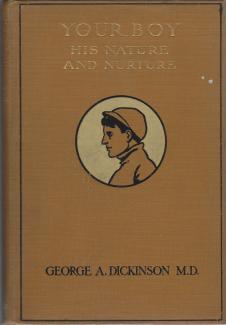
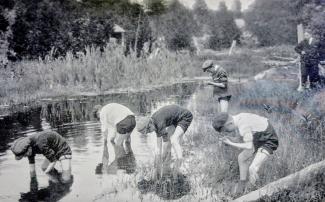
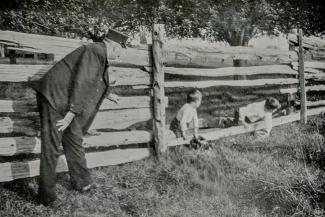
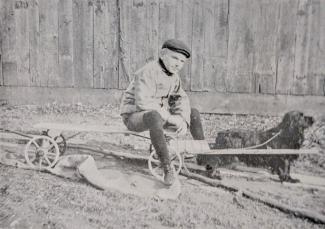
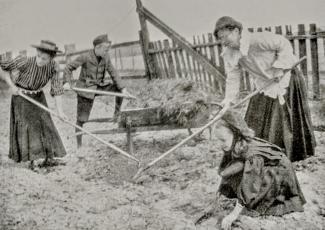
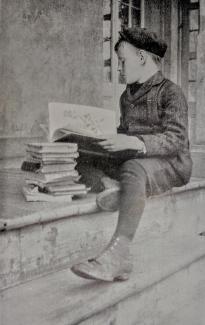
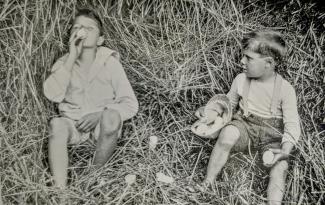
Man they sure were obsessed…
Man they sure were obsessed with masturbation in the day...
"it arouses love, it awakens…